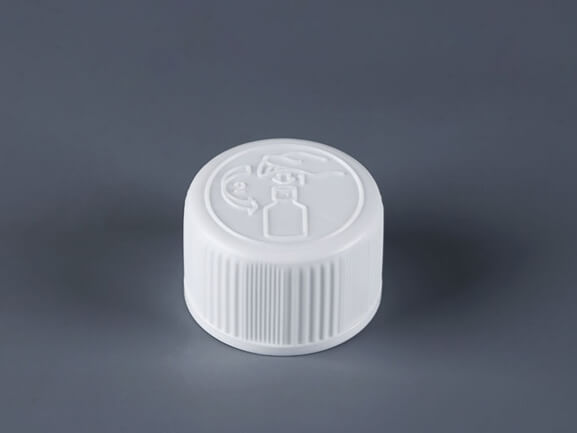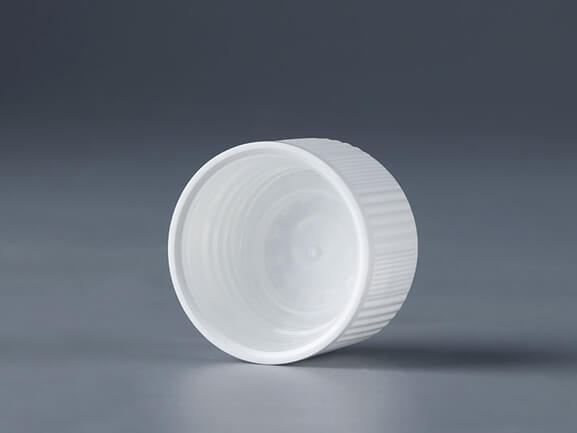In the pharmaceutical industry, the use of 28mm caps with or without desiccants is determined by the specific requirements of the medication being packaged. Here's a breakdown of the applications and considerations for each:
28mm Silica Gel Cap with Child Resistant

28mm Cap with Desiccant Applications:
Moisture-Sensitive Medications: Medications that are hygroscopic or sensitive to moisture require protection to maintain their efficacy and stability. This includes certain tablets, capsules, and powders.
Extended Shelf Life: Products that need an extended shelf life benefit from the moisture absorption properties of desiccants, preventing degradation over time.
Biopharmaceuticals: Some biological products, which are often sensitive to environmental conditions, might also use desiccant caps.
Considerations:
Material Compatibility: The desiccant must be compatible with the pharmaceutical product and the packaging material.
Regulatory Compliance: Desiccants used in pharmaceutical packaging must meet regulatory standards for safety and efficacy.
Cost: Desiccant caps are typically more expensive due to the additional materials and manufacturing processes involved.
28mm child resistant cap for liquid

28mm Cap without Desiccant Applications:
Non-Hygroscopic Medications: Products that are not sensitive to moisture do not require desiccants. This includes many liquids, non-hygroscopic tablets, and some ointments.
Short-Term Use: Medications that are intended for short-term use or have a rapid turnover may not need the added protection of a desiccant.
Moisture-Resistant Formulations: Some medications are formulated to be inherently resistant to moisture, negating the need for additional desiccants.
Considerations:
Cost-Effectiveness: Caps without desiccants are generally cheaper to produce and purchase.
Simplicity in Packaging: Simplifies the packaging process and reduces potential compatibility issues with desiccant materials.
Environmental Impact: Reduces the use of additional materials, which may be beneficial from an environmental perspective.
Decision Factors
Moisture Sensitivity of the Product: Determine if the medication degrades or loses potency when exposed to moisture.
Shelf Life Requirements: Assess how long the product needs to remain stable on the shelf.
Storage Conditions: Consider the typical storage conditions (temperature and humidity) the product will be exposed to.
Cost-Benefit Analysis: Weigh the costs of using desiccant caps against the potential benefits of increased product stability and shelf life.
Regulatory Requirements: Ensure compliance with all relevant pharmaceutical regulations and guidelines for packaging.
Summary
Using 28mm caps with desiccants is essential for moisture-sensitive medications to ensure their stability and efficacy over time. For products that are not affected by moisture, caps without desiccants are a cost-effective and simpler option. The decision should be based on the specific needs of the pharmaceutical product, considering factors like moisture sensitivity, shelf life, storage conditions, cost, and regulatory requirements.
Copyright © Shijiazhuang Xinfuda Medical Packaging Co., Ltd. All Rights
MAKE AN ENQUIRY